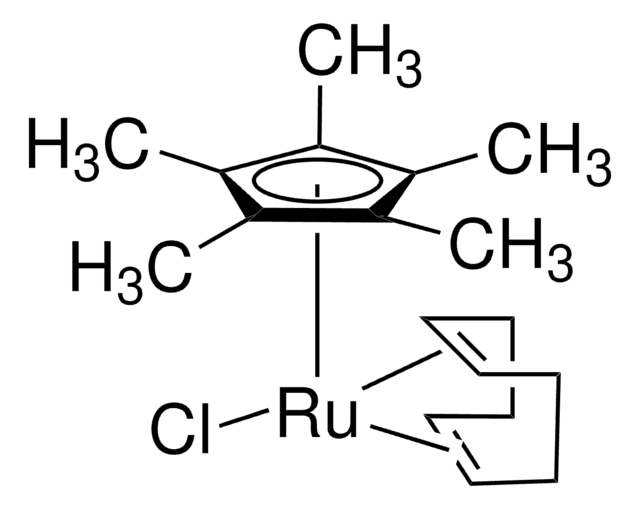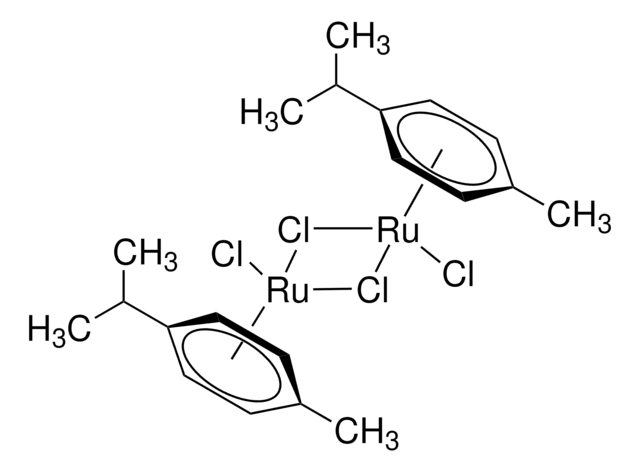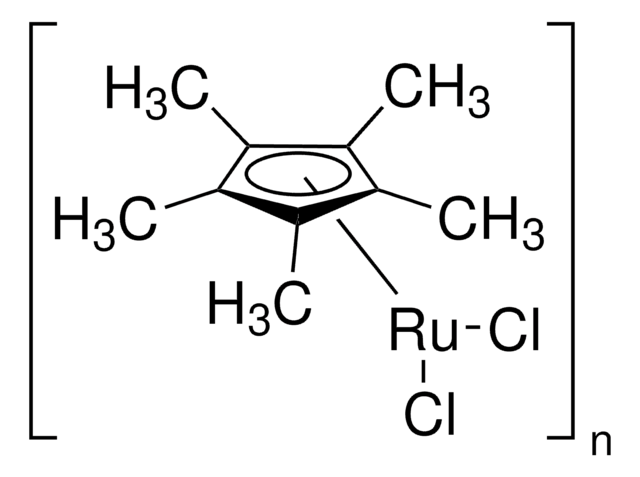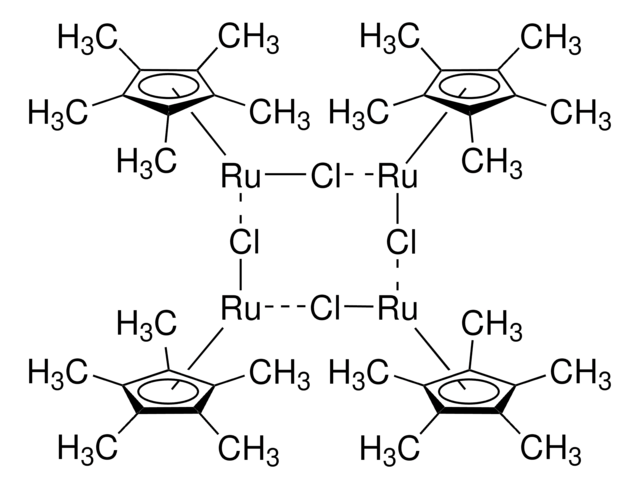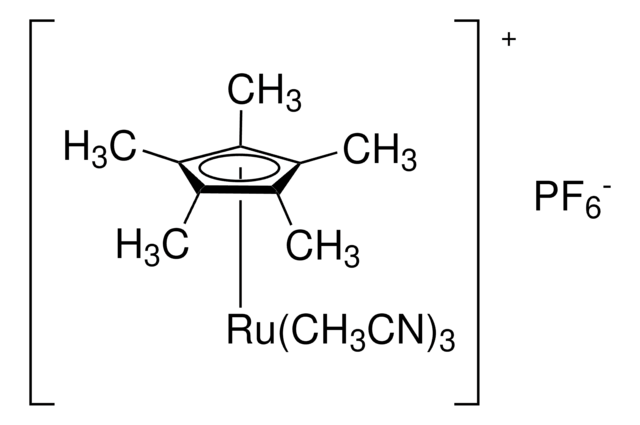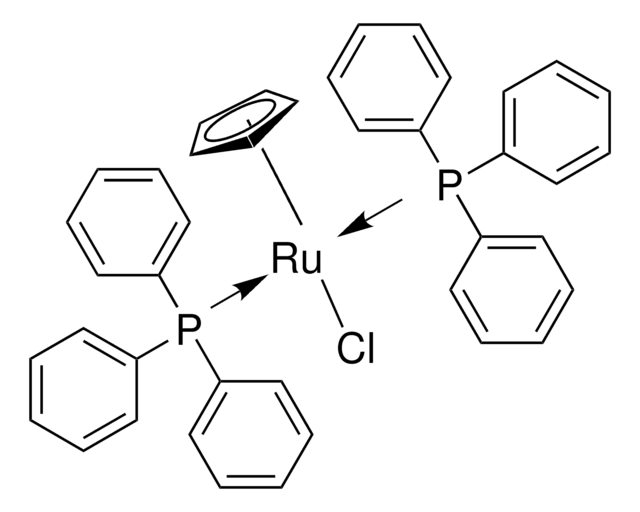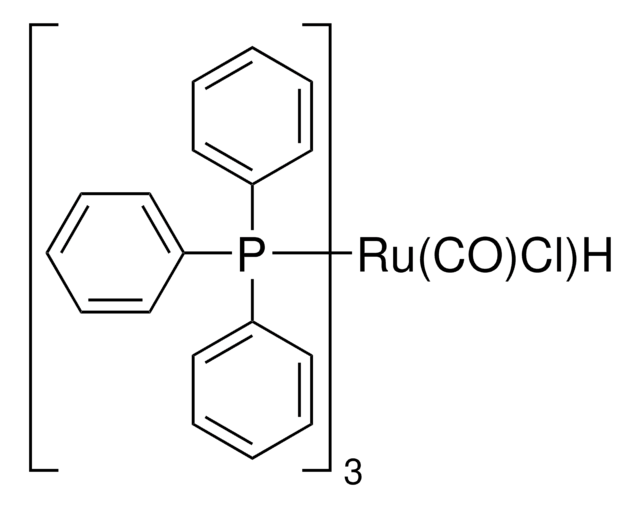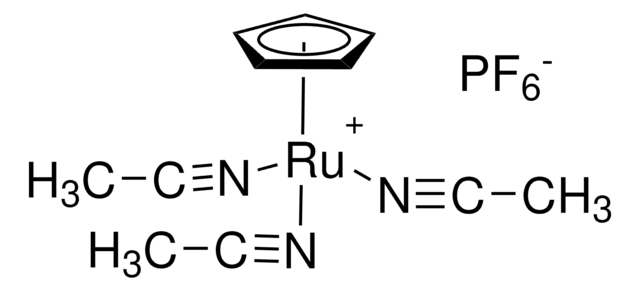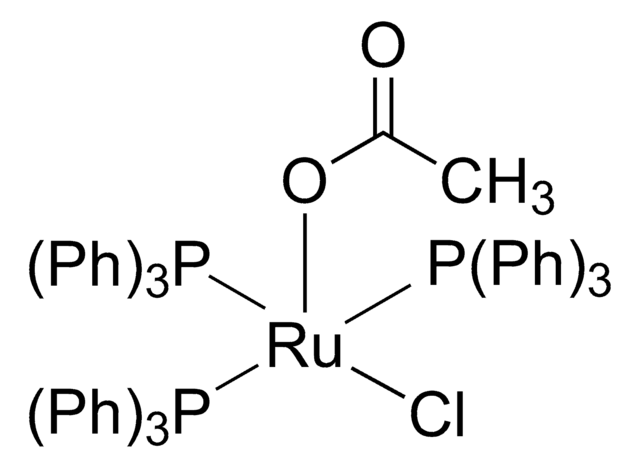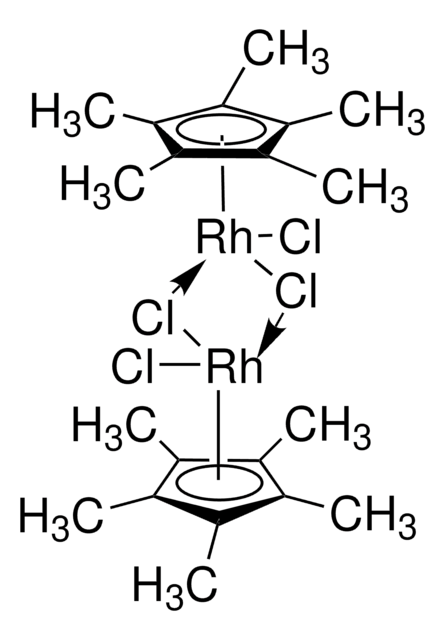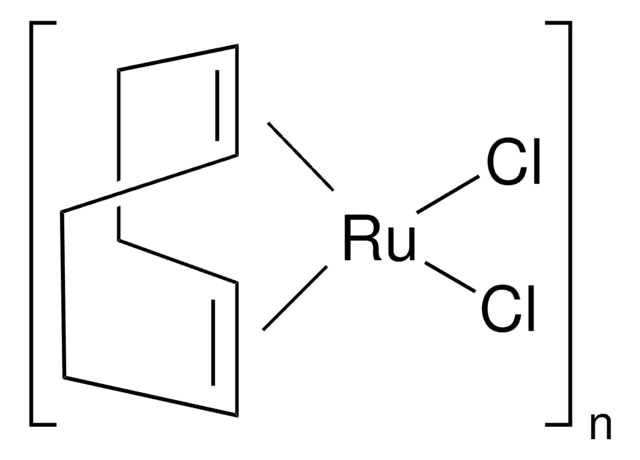673293
Pentamethylcyclopentadienylbis(triphenylphosphine)ruthenium(II) chloride
Synonym(s):
Cp*RuCl(PPh3)2, Chloro(pentamethylcyclopentadienyl)bis(triphenylphosphine)ruthenium(II)
About This Item
Recommended Products
form
solid
Quality Level
reaction suitability
core: ruthenium
reagent type: catalyst
reaction type: click chemistry
mp
128 °C (D)
storage temp.
2-8°C
SMILES string
Cl[Ru].C[C]1[C](C)[C](C)[C](C)[C]1C.c2ccc(cc2)P(c3ccccc3)c4ccccc4.c5ccc(cc5)P(c6ccccc6)c7ccccc7
InChI
1S/2C18H15P.C10H15.ClH.Ru/c2*1-4-10-16(11-5-1)19(17-12-6-2-7-13-17)18-14-8-3-9-15-18;1-6-7(2)9(4)10(5)8(6)3;;/h2*1-15H;1-5H3;1H;/q;;;;+1/p-1
InChI key
KLXKSZDVKAWYRT-UHFFFAOYSA-M
Application
Storage Class
11 - Combustible Solids
wgk_germany
WGK 3
flash_point_f
Not applicable
flash_point_c
Not applicable
Choose from one of the most recent versions:
Already Own This Product?
Find documentation for the products that you have recently purchased in the Document Library.
Customers Also Viewed
Our team of scientists has experience in all areas of research including Life Science, Material Science, Chemical Synthesis, Chromatography, Analytical and many others.
Contact Technical Service